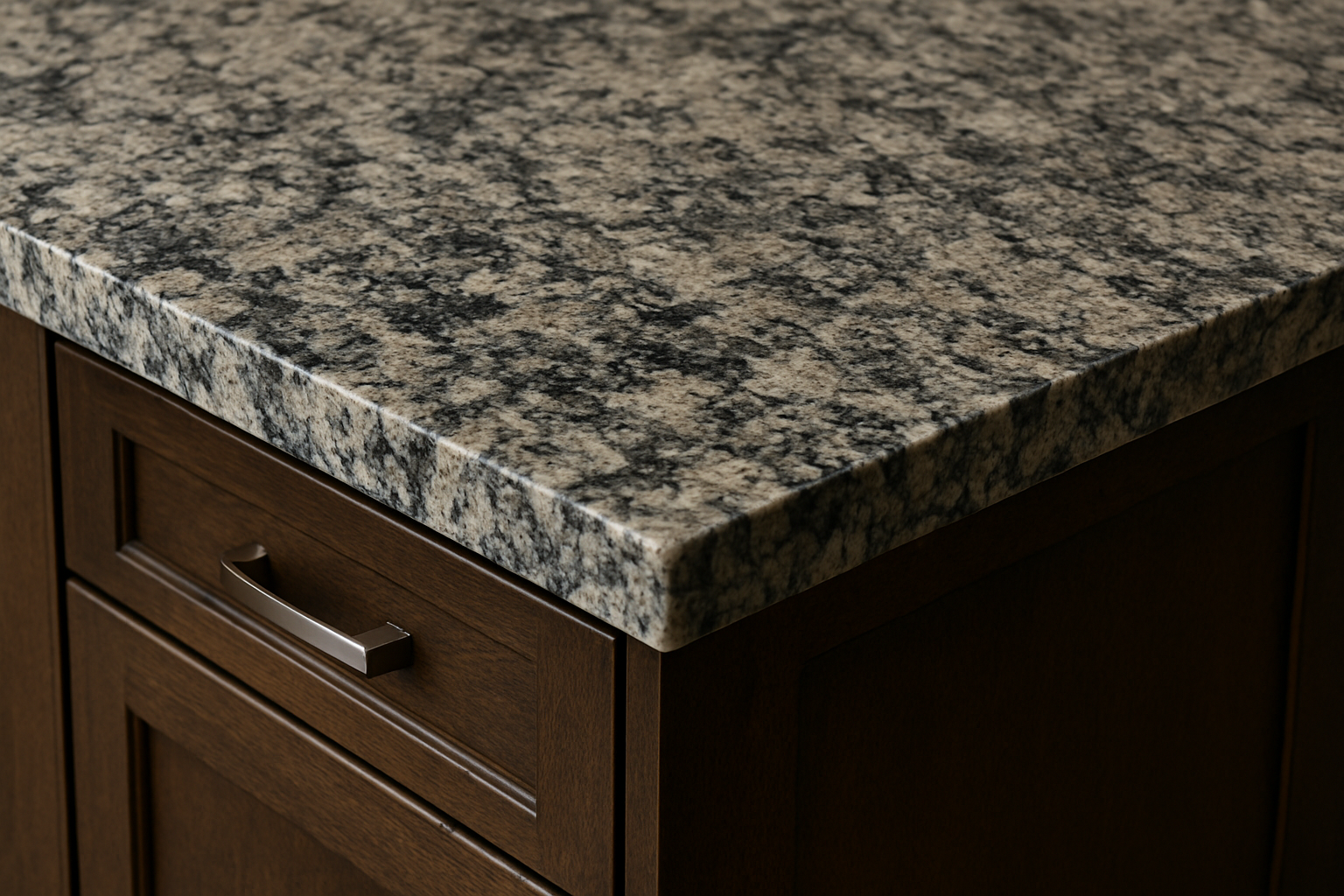Designing a new kitchen comes with lots of choices, and it can feel overwhelming. You need to pick the right style, plan the layout, and choose colours that match your home. One thing you shouldn’t have to stress about is the thickness of your granite worktop — and that’s where we can help.
Understanding Granite Slab Thickness
To understand granite slab thickness, we need to know how it’s measured. Thickness is usually measured in millimetres (mm), centimetres (cm), or inches.
Granite comes in different thicknesses. The most common ones you’ll find are:
- 2 cm (about 3/4 inch)
- 3 cm (about 1 1/8 inch)
We’ll talk more about which one is better for countertops and floors later.
Choosing the right worktop material
In order to make an informed decision about how thick your worktops should be, you should have an idea of what worktop material you want. There are so many different types of work surface materials you can choose from. From natural stone such as granite worktops, to engineered stone, such as quartz, there’s something for everyone’s tastes!
No matter what material you go for, a general rule of thumb is that the thicker the worktop, the more durable and practical it is.
Plus, a high-quality kitchen worktop will generally last longer than a cheaper material, such as laminate worktops.
Granite worktops are a great choice for a kitchen countertop because they’re resistant to most forms of damage, are easy to clean, and are more affordable than other stone worktops. They also add character to your kitchen space!
How thick are standard granite worktops?
Granite Worktop Thickness differs from the thickness of wood worktops and laminate worktops. The latter are often between 38mm to 40mm in thickness, whereas the standard thickness of stone worktops is 30mm. Thinner 20mm stone worktops are also available, but it’s only recently that more kitchen styles are being designed at 20mm because demand has increased.
Standard Thickness for Granite Flooring
Granite tiles are a popular choice for flooring due to their durability and beauty. Most homeowners and experts recommend tiles that are 60×30 cm or 60×60 cm in size, with a thickness of either 2 cm or 3 cm, for the best quality.
If you’re looking at mosaic tiles, the thickness can vary based on the size:
- Small mosaic tiles: Around 1 inch with a thickness of 1/8 inch.
- Medium mosaic tiles: 6×6 inches or 12×12 inches with a thickness of 3/8 inch.
- Large format mosaic tiles: 18×18 inches or 24×24 inches with a thickness of up to 1/2 inch.
Remember, the thicker the tile, generally, the stronger and more durable it will be.
Check out some of the best granite for stairs, an area that experiences one of the most wear and tear.
Structural and Support Requirements
Granite Worktop Thickness and heavier materials naturally put more strain on the cabinets below. Granite, marble, and chunky wooden worktops can weigh quite a bit, so it’s important that your kitchen units are strong enough to handle the load. Most standard cabinets are fine with 20mm and 30mm worktops, but anything heavier might need extra support, especially under larger sections or overhangs.
Thinner materials like 20mm quartz or ultra-slim 6mm porcelain are lighter and don’t usually need much extra consideration. Porcelain in particular is surprisingly strong (even at just 6mm), which makes it a good option if you want something slim without worrying about added weight.
Thicker Granite worktops and heavier materials naturally put more strain on the cabinets below. Granite, marble, and chunky wooden worktops can weigh quite a bit, so it’s important that your kitchen units are strong enough to handle the load. Most standard cabinets are fine with 20mm and 30mm worktops, but anything heavier might need extra support, especially under larger sections or overhangs.
Conclusion
When redesigning your kitchen, thickness should be one of your considerations because it can affect the cost and overall look of your design. In a nutshell, Granite Worktop Thickness will cost more since it uses more material. However, thinner countertops may end up costing you more in the long run because of issues with durability. Before getting your heart set on a specific design, make sure you review the considerations we laid out above to make the best possible decision – and stick to it.
